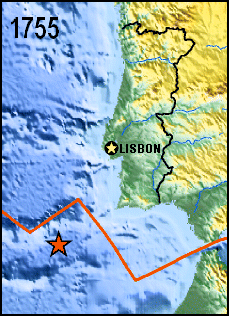 Seven arguments against church-state separation and how to reply
Seven arguments against church-state separation and how to reply
Some people would like to take over society — at the taxpayers' expense — and they try to depict any opposition to this as persecution. Here's how to deal with their special pleading.
1. Religious freedom means permitting religion in the public square
Here "the public square" is often not defined. This argument can slide from affirming one's right to display religious symbols as an individual to an ostensible right to display them as a state employee.
And the appeal to the right to "religious freedom" can also be ambiguous. "Religious freedom" as an important right, or as an absolute that overrides other rights? When people ignore the rights of others who don't wish to live according to the doctrine in question, they are acting in a way that would be rejected by a human rights court. There human rights must be balanced ― your right to religious freedom against mine. And they must also be balanced in terms of other human rights ― your religious rights against my right to obtain legal medical treatment.
For instance, conscientious objection was originally permitted to allow people like Quakers to serve as medics instead of soldiers, because they have religious scruples against killing. This kind of conscientious objection is exercised as a human right, since it does not infringe on the rights of others. However, the right to conscientious objection has now been expanded to the point of threatening access to legal medical services like abortion or even contraception of which some religious groups disapprove. Unless there are quick, easy alternatives, the pharmacist who refuses to sell a morning-after pill for reasons of conscience is violating the rights of the desperate woman seeking help.
The concept of religious freedom is also being expanded in order to let religious groups mark public space with their symbols and permit their adherents wear non-obligatory religious symbols while in the public service. Thus the Roman Catholic Church is trying to establish “the right to give witness and to live one's faith publicly through visible signs”. [1] That's fine in the private sphere, but someone who is employed by the state has no business putting the public under pressure by “giving witness” on the job.
And in the long term if more and more groups start proselytising ― and that includes atheist missionaries ― society can become balkanised along religious lines. You only have to look at the religious parades of Northern Ireland to see where a public show of religion can lead. And it was to prevent any repeat of religious massacres that France developed its strict separation between church and state, including a ban on religious processions which could serve as a provocation.
The way to argue against this appeal to unlimited religious freedom is to point out that the religious freedom of one person must be balanced against the rights of others, especially the right to be free of religious coercion.
2. "Give us what we want, or that means you're against us" ― neutrality is not possible
In 2011 a clarification of the Vatican's position on secularism was given by Archbishop Crepaldi. He was asked if there could be a purely political secularism, in other words, was it "possible not to take a position on the problem of God?" His Grace replied, "It is not possible". And he added, "And the secularism that holds it as possible would be deceitful." [2] This sounds like just a rather unpleasant way of saying that either the Church gets its way or the state is anti-Catholic, because a neutral separation is not possible.
However, this is Vatican-speak and many Catholic lay people continue to cherish the separation of church and state. As President John F. Kennedy put it 1960: "I believe in an America where the separation of church and state is absolute.... I believe in a president whose views on religion are his own private affair." [3]
3. Religious values can only be fully lived in a society which supports them.
The answer to this is simple: "Get thee to a nunnery!" That's what cloisters are for. They're communities of people who wish to live in a society that is run according to their own religious rules.
However, what if people protest that they'd rather not withdraw to a cloister and confine the strict religious routine to themselves, but would prefer to remain in this sinful world and tell all their neighbours what to do? Unfortunately, that sounds suspiciously like a power play.
4. "Human dignity..."
The moment someone mentions this in a discussion of secularism — or anything else — stop right there and tell them you don't do human dignity, only human rights. While human rights are well defined and correspond to human needs, human dignity can be whatever the clerics want it to be. Human dignity is a weasel word: don't let them use it. (And if they call it transcendent dignity, be really on your guard — this has nothing whatever to do with human rights!) Let's not forget that some mullahs think you give a woman "dignity" by covering her, head to toe, in a long black robe and an Egyptian doctor has saidFemaile geniotal mutilation is done because "it gives the girl more dignity". [4]
5. "Natural law..."
As soon as this term is mentioned, back off for the same reason as above, for natural law amounts to whatever the Catholic Church says it is. Historically it's meant some totally contradictory things, depending upon the current interests of the Vatican. As Prof. Guenter Lewy puts it:
Natural law is abstract and vague to the point of making its application to concrete cases extremely difficult. It requires an authoritative interpreter, the Church. But this means that the gap between the abstract principles and the case at issue will be closed by answers tied up and almost predetermined by the interests of the Church as an institution. […]
♦ The German Catholics in 1937 were told that resistance to the Nazi state was sinful;
♦ Spanish Catholics at the same time were urged to support the rebellion of General Franco against the Second Spanish Republic.
♦ In World War II Catholics serving in both of the warring factions were assured that they were fighting a just war.
♦ The institution of slavery was at one time defended by leading theologians as in consonance with natural law. [...]
All these positions have been justified on the basis of the same natural law premises. [5]
6. Christianity represents Western culture, therefore its influence must not be restricted
This is an attempt to do an end-run around church-state separation. Christianity is claimed to be exempt from any restrictions imposed upon other religions because it's part of "European cultural identity". This favourite papal notion can lead to hilarious historical contortions.
In Regensburg [2006], Benedict [stated] that Christianity took on "its historically decisive character in Europe" despite "its origins and some significant developments in the East".
These few significant "developments" presumably include a Jew called Jesus and his birthplace in Bethlehem — which is at least 1,000 km from Rome — along with the misadventures of numerous disciples in the Middle East, until Saint Paul headed off to Macedonia and the whole shebang mercifully became a "Western" or "occidental" religion. [6]
 7. (My brand of) religion must run society or God will punish us all.
7. (My brand of) religion must run society or God will punish us all.
This is the old divine-wrath argument against church-state separation. It shocks even many believers to assert that God chooses wholesale punishment of innocent people for the sins of a few. It was first ridiculed by Voltaire in response to the clerics' claim that the Lisbon earthquake of 1755 was caused by the city's sinfulness.
The violent tremor began about 9:30 on the morning of All Hallows when the pious population was on their knees. The earth rumbled, the ground shook, and with a deafening roar churches collapsed on the worshippers. Naturally, Voltaire knew nothing of the wanderings of the earth's crust. He had no idea that on that fateful morning, deep beneath the waves, the African tectonic plate had ploughed into the Eurasian one. However, he was pretty sure that the earthquake had a natural cause and was not due to the licentiousness of the good citizens of Lisbon. [7]
More than three centuries later this argument is still being used against secularism. It comes in two variants (which are often combined). First, if God punishes the unconverted, then missionising becomes a duty to them and, second, if divine wrath is visited on everyone, then "sin" must be rooted out of the whole society.
 Perry Schmidt-Leukel, Professor of Theology, University of Glasgow, explains the individual-punishment variant as follows:
Perry Schmidt-Leukel, Professor of Theology, University of Glasgow, explains the individual-punishment variant as follows:
Missionary doctrines such as Christianity or Islam are intrinsically intolerant of other beliefs. Love your neighbour includes the active care for his or her salvation. And because — as Thomas Aquinas [the official Catholic theologian], among others argued — eternal salvation has absolute priority over all other goods, care for the salvation of others does not per se exclude the application of force to convert someone to the right faith or protect them against heresy. [8]
However, the Vatican favours the general-punishment variant, the idea that even private "sins" disturb the cosmos, thus harming everyone. This makes "sinners" into public enemies, even if their "sins" involve no one else. As Pope Paul VI put it:
Every sin in fact causes a perturbation in the universal order established by God [9]
Pope Benedict XVI clothed this idea in more tactful words, substituting "disorder" for Paul VI's "perturbation in the universal order", when he used this to condemn gays. This can justify discrimination and repression. If anything a cleric labels "sinful" can have devastating effects on all, then he can claim to be public-spirited in imposing his will on society. This is a very convenient argument: “It brings down the judgment of God on us all. I love my neighbour, and I do not want that to happen.” [10]
Of course, a less charitable interpretation would be that this argument amounts to: "Do what I say, or my Powerful Friend will get you!"
From the time of ancient Nineveh (according to Jonah 3) the divine-wrath argument led to national days of repentance in the hope of averting plagues, famines and floods. In the Middle Ages the Church claimed that it was the sins of the whole populace which were bringing these calamities. However, as most people's conviction of their own sinfulness has seriously waned, [11] the clerics now frequently tell people that it was someone else's sinfulness that draws down God's wrath. A favourite class of "sinners", who can be blamed because there aren't enough of them to seriously shrink church attendance, are the poor gays. They make good scapegoats, as they form "a gratifyingly small minority". [12] Thus in recent years clerics of various hues have blamed gays for: 
♦ floods in England [13]
♦ fires in California [14]
♦ Hurricane Katrina [15] [16]
♦ a minor earthquake in Israel [17]
♦ a worldwide economic crisis [16]
♦ the Russian grab for the Crimea [18]
♦ and the ebola epidemic in Liberia. [19]
In the Western world these ideas are on the lunatic fringe, but when US Evangelicals present them in Africa as scientifically accepted they can be taken seriously and lead to gays being terrorised and even legally executed. [20]
Targeting gays lets unelected clerics maintain their authority by posing as champions against "sinister forces". A small and harmless minority is demonised and proclaimed a threat to society. Fear of God's wrath can be used to suspend fundamental freedoms and effectively place society under emergency laws. But while a genuine security threat only prompts temporary measures like martial law, this manufactured "moral emergency" is seen as permanent. The laws brought in to enforce to religious doctrines are meant to be forever.
Notes
1. "Swiss Bishops Oppose Removal of Crucifix", Zenit, 6 December 2010. http://www.zenit.org/article-31173?l=english
2. "Church and State: To Separate, or Set Against", Zenit, 2 February 2011. http://www.zenit.org/article-31642?l=english
3. John F. Kennedy, Speech to the Greater Houston Ministerial Association, Houston, Texas, 12 September 1960. http://www.bartleby.com/73/669.html
For more on his thinking about secularism, see: Kathleen Kennedy Townsend, "Sarah Palin is wrong about John F. Kennedy, religion and politics", Washington Post, 3 December 2010. http://www.washingtonpost.com/wp-dyn/content/article/2010/12/03/AR2010120303209.html
4. "Egyptian doctor to stand trial for female genital mutilation in landmark case", Guardian, 21 May 2014. http://www.theguardian.com/society/2014/may/21/egyptian-doctor-fadl-trial-female-genital-mutilation-landmark-case
5. Guenter Lewy, The Catholic Church and Nazi Germany, 1964.
http://www.concordatwatch.eu/showkb.php?org_id=858&kb_header_id=752&order=kb_rank%20ASC&kb_id=1212
See also "Papal permission to convert by force and enslave pagans", Concordat Watch.
6. Robert Fisk, "Pope will demean other religions to prove Christianity’s ‘superiority’", Belfast Telegraph, 28 February 2009.
http://www.belfasttelegraph.co.uk/opinion/columnists/robert-fisk/robert-fisk-pope-will-demean-other-religions-to-prove-christianityrsquos-lsquosuperiorityrsquo-14208500.html
7. http://nisee.berkeley.edu/lisbon/
This led Voltaire to remark:
After the earthquake which had destroyed three-quarters of the city of Lisbon, the sages of that country could think of no means more effectual to preserve the kingdom from utter ruin, than to entertain the people with an auto-da-fé, it having been decided by the University of Coimbra that burning a few people alive by a slow fire, and with great ceremony, is an infallible secret to prevent earthquakes.
From Candide quoted by Andrew Brown, "Voltaire and Haiti", Guardian, 14 January 2010 . http://www.guardian.co.uk/commentisfree/andrewbrown/2010/jan/14/religion-haiti
8. Perry Schmidt-Leukel, summarised in Jürgen Habermas, "Intolerance and Discrimination", I.CON [International Journal of Constitutional Law], Volume 1, Number 1, 2003, p. 7. http://icon.oxfordjournals.org/cgi/reprint/1/1/2
9. Pope Paul VI, Indulgentiarum Doctrina, 2, (1967)
http://www.vatican.va/holy_father/paul_vi/apost_constitutions/documents/hf_p-vi_apc_19670101_indulgentiarum-doctrina_en.html
10. Stephen Green of Christian Voice, a British Evangelical group, quoted in "Arts, Briefly : Lords Spurn Springer Lawsuit", New York Times, 6 March 2008. http://www.nytimes.com/2008/03/06/arts/06arts-LORDSSPURNSP_BRF.html
11. "Almost half of Roman Catholics in England and Wales no longer feel obliged to confess their sins, a new survey claims."
Martin Beckford, "Roman Catholics shun confession but embrace reincarnation, survey claims", Telegraph, 18 July 2008. http://www.telegraph.co.uk/news/uknews/2435824/Roman-Catholics-shun-confession-but-embrace-reincarnation-survey-claims.html
12. Andrew Brown, "Poor Dr Rowan: solving the gay row will only lead to another one", Telegraph, 4 October 2003. http://www.telegraph.co.uk/comment/personal-view/3597228/Poor-Dr-Rowan-solving-the-gay-row-will-only-lead-to-another-one.html
However, there are signs that this strategy is failing and even some clerical opponents are beginning to switch sides. See Frank Rich, "The Bigots’ Last Hurrah", New York Times, 18 April 2009. http://www.nytimes.com/2009/04/19/opinion/19Rich.html
13. Jonathan Wynne-Jones, "Floods are judgment on society, say bishops", Sunday Telegraph, 2 July 2007. http://www.telegraph.co.uk/news/main.jhtml?xml=/news/2007/07/01/nflood201.xml
"UK storms are divine retribution for gay marriage laws, says Ukip councillor", Guardian, 2014-01-14 http://www.theguardian.com/society/2014/jan/18/uk-storms-divine-retirubtion-gay-marriage-ukip
14. "Ellison", Reading the World (blog) on Brother Mike's TV appearance in "Gays Bring Hell to California; Handbasket Still Missing", 25 October 2007. http://thisisellison.wordpress.com/2007/10/25/gays-bring-hell-to-california-handbasket-still-missing/#comment-120
15. The newly-appointed Bishop Gerhard Maria Wagner, quoted in "Pope promotes pastor who said hurricane was God's punishment", Guardian, 1 February 2009. http://www.guardian.co.uk/world/2009/feb/01/gerhard-wagner-hurricane-katrina
16. Father Eberhard Amann, priest of St. Gallenkirch, Austria, in adverts in the Voralberger Nachrichten and the Neue Voralberg Tageszeitung in February 2009, cited in "Rome darf sich nicht erpressen lassen", Katholische Nachrichten, 26 February 2009. http://www.kath.net/detail.php?id=22231
17. "Lawmaker: Israel Quakes Gays' Fault", Associated Press, 21 February 2008. http://www.time.com/time/world/article/0,8599,1715105,00.html
18. "Far-Right Minister: Gays Responsible for Ukraine Crisis", The Advocate, 11 March 2014. http://www.advocate.com/politics/religion/2014/03/11/far-right-minister-gays-responsible-ukraine-crisis
19. "‘God is angry with Liberia,’ local religious leaders say, blaming Ebola on ‘homosexualism’", Washington Post, 06 August 2014. http://www.washingtonpost.com/news/morning-mix/wp/2014/08/06/god-is-angry-with-liberia-ebola-is-a-plague/
"Ebola is a curse from God over ‘immoral acts’: African church leaders", Life Site News, 11 August 2014. http://www.lifesitenews.com/news/ebola-is-a-curse-from-god-african-church-leaders
"Gay community under attack in Liberia over Ebola outbreak", Reuters, 23 October 2014. http://uk.reuters.com/article/2014/10/23/us-foundation-ebola-liberia-gay-idUKKCN0IC1GV20141023
20. Jeffrey Gettleman, "Americans’ Role Seen in Uganda Anti-Gay Push", New York Times, 4 January 2011. http://www.nytimes.com/2010/01/04/world/africa/04uganda.html








